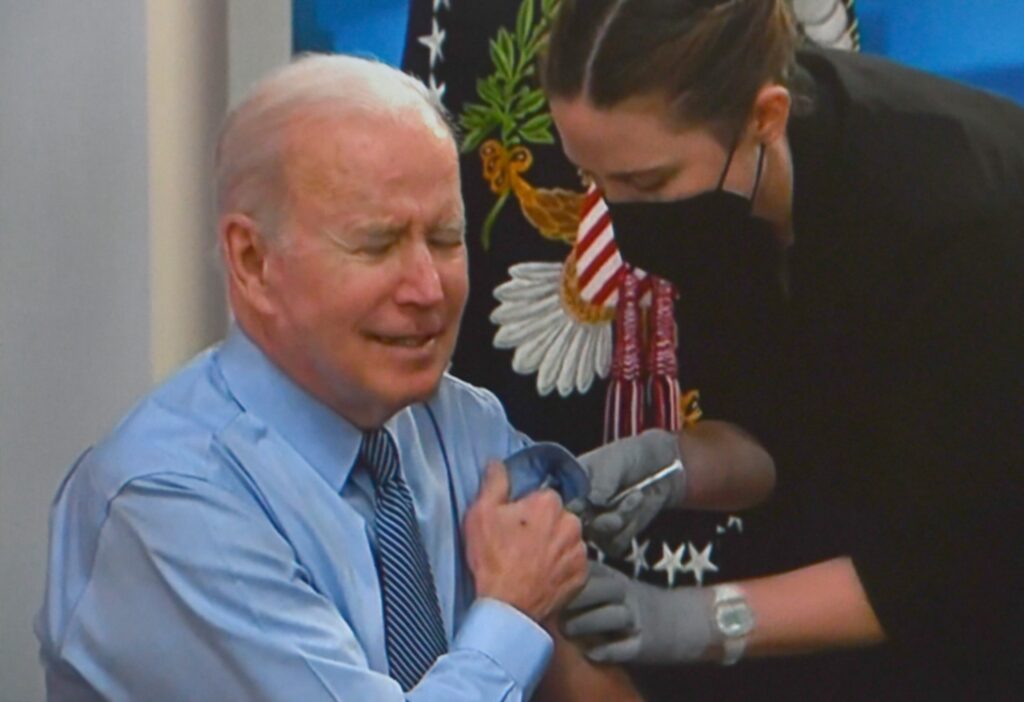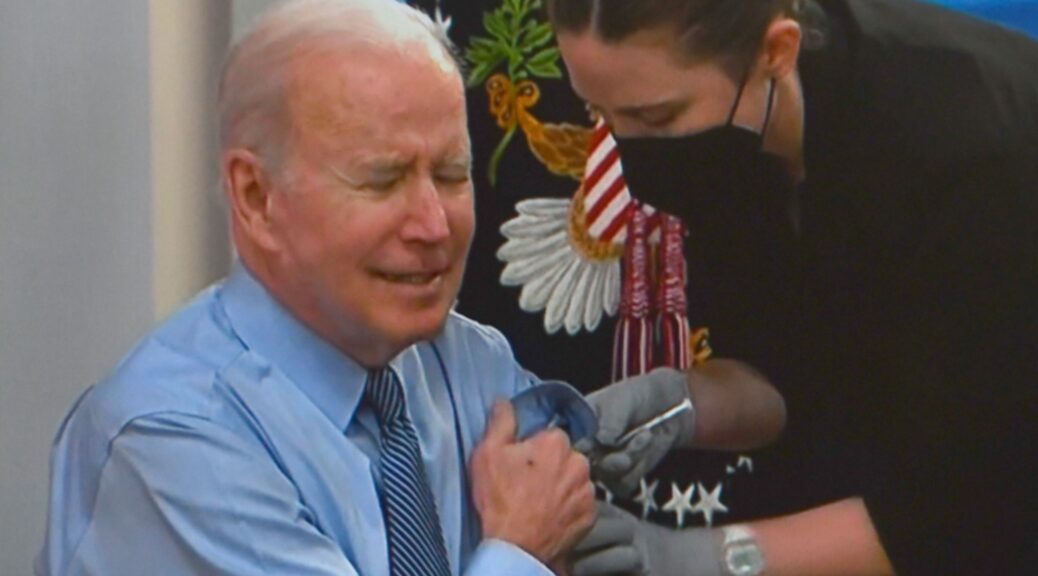Website will Feature a New Test-to-Treat Locator Tool to Help People Access the Over 2,000 Locations that Offer COVID-19 Tests and Antiviral Pills at One Convenient Location
Administration Continues to Urge Congress to Provide Funding Immediately to Help Keep These Life-Saving Protections Readily Available to All

Today, the Biden Administration is launching COVID.gov, a new one-stop shop website to help all people in the United States gain even better access to lifesaving tools like vaccines, tests, treatments, and masks, as well as get the latest updates on COVID-19 in their area. The Administration has worked over the past 14 months to set up over 90,000 vaccination sites, make more than 400 million high-quality masks available for free, send free tests to peoples’ homes, and stand up new test-to-treat sites where people can get tested and receive life-saving antivirals all in one place. Now, with a click of a button, people will be able to find where to access all of these tools, as well as receive the latest CDC data on the level of COVID-19 in their community.
As part of COVID.gov, a new Test-to-Treat locator will help people access pharmacies and community health centers across the nation where people can get tested for COVID-19 and receive appropriate treatments if they need them. President Biden announced the Test-to-Treat initiative in his State of the Union address earlier this month. Since that time, the Administration has already launched over 2,000 of these sites, plus more than 240 sites across Veteran’s Health Administration and Department of Defense facilities to serve veterans, military personnel, and their families. As has been the case throughout the pandemic, the Administration is ensuring locations are established in our most hard-hit and high-risk communities.
Because of the lifesaving tools we now have, America is in a new moment in the pandemic. The country is moving forward safely and people are getting back to their more normal routines. To ensure we’re sustaining and building on this progress and protecting and preparing for new variants, earlier this month, the President released his National COVID-19 Preparedness Plan. The President was clear that in order to execute on this plan and to stay ahead of the virus, the Administration needs additional funding from Congress—including $22.5 billion in immediate emergency funds. To date, Congress has failed to provide those funds and the country is already suffering the consequences. In the last two weeks, the Administration has had to stop reimbursing health care providers for treating the uninsured, cancel monoclonal antibody orders and cut states’ supply, reduce orders of treatments for the immunocompromised, and pull the U.S. out of line for future vaccine and next-generation treatment purchases. These issues disproportionately impact our hardest-hit and highest-risk populations, including communities of color and individuals with disabilities. The Administration continues to urge Congress to act quickly, as the consequences will continue to get worse in the coming weeks.
Protecting the American people from COVID-19 now and into the future relies on affordable and accessible tools like vaccines, treatments, tests and high-quality masks. Through efforts like COVID.gov and Test-to-Treat, the Administration continues to take steps to make these tools even more readily available. Now, we need Congress to do its part and continue to fund the COVID-19 response.
Today’s announcements include:
Launch of COVID.gov, A New One-Stop-Shop Website Where Individuals Can Find Where to Access Vaccines, Tests, Treatments, and High-Quality Masks. Today, the Administration launched COVID.gov, a new website to help people access vaccines, tests, treatments, and high-quality masks. COVID.gov also provides people an easy way to find the level of COVID-19 in their community. Early last year, the Administration launched Vaccines.gov and an associated call line to help people locate and make appointments at vaccine sites near them. In January of this year, the Administration launched COVIDTests.gov where people could order tests and have them shipped to their homes for free. COVID.gov will allow individuals to access both of these services at one convenient, easy-to-use website. It will also offer information about where to find free high-quality masks and, for the first time, where to access COVID-19 treatments.
COVID.gov will be available in English, Spanish, and Simplified Chinese and is accessible for those using assistive technologies. The Administration is also making all of these COVID-19 tools available over the phone through the National Hotline at 1-800-232-0233 (TTY 1-888-720-7489), which supports over 150 languages. For individuals with disabilities who may need additional support, the Disability Information and Access Line (DIAL) is also available to help at 1-888-677-1199 or via email at DIAL@usaginganddisability.org.
New Locator Tool to Help Individuals Access the Over 2,000 Test-to-Treat Sites Across the Country. Today, as part of COVID.gov, the Administration launched a new Test-to-Treat locator tool to help the public access lifesaving drugs if they are sick with COVID-19. President Biden announced in his State of the Union address the creation of the Test-to-Treat initiative. This program creates one-stop-shop locations where people can get a COVID-19 test and receive an oral antiviral treatment, if appropriate for them because they test positive and face high risks from COVID. Since the launch earlier this month, there are now over 2,000 Test-to-Treat locations nationwide, including in pharmacy-based clinics, federally-qualified community health centers (FQHCs), and long-term care facilities. As has been the case since December, people can still be tested and treated by their own health care providers who can appropriately prescribe these oral antivirals at locations where they are being distributed, now more easily identified than ever by the Test to Treat locator.
Test-to-Treat Available for All Patients in Veteran’s Health Administration and Military Personnel and Their Families. Test-to-Treat is now available for all Veterans Affairs (VA) patients in VA clinics across the country. Linking patients who test positive with treatments that are appropriate for them is the standard of care in VA clinics. Each test done in the VA is linked to a care team, and accompanied by review, patient counseling, and consideration for treatment indication and eligibility. The VA also allows individuals with a positive home test result to have a virtual visit to connect with counseling and to receive oral medication if appropriate. VA sites have access to oral antiviral treatments for COVID-19, and treatment generally is provided on site or delivered via expedited mail. In addition, the Department of Defense (DoD) has made one-stop Test-to-Treat available at more than 60 DoD Medical Treatment Facilities (MTFs) across the country, with hundreds more primed to start operating soon. MTF patients across the country—including active duty service members and TRICARE beneficiaries—can access Test-to-Treat at facilities in their communities.
Hundreds of Test-to-Treat Locations in FQHCs and Indian Health Service Facilities Across the Country to Protect Hard-Hit and High-Risk Communities from COVID-19. Test-to-Treat locations also are available in more than 240 FQHCs and Indian Health Service (IHS) Facilities across the country, ensuring access to lifesaving treatments in some of our hardest-hit and highest-risk communities. The number of these locations will continue to grow in the coming weeks, as more and more FQHCs, Rural Health Clinics, and IHS locations come online with Test-to-Treat programs. These community providers will continue to serve as trusted messengers in raising awareness about the availability of lifesaving treatments, and also partner with community-based organizations to reach specific high-risk populations, including individuals with disabilities.

